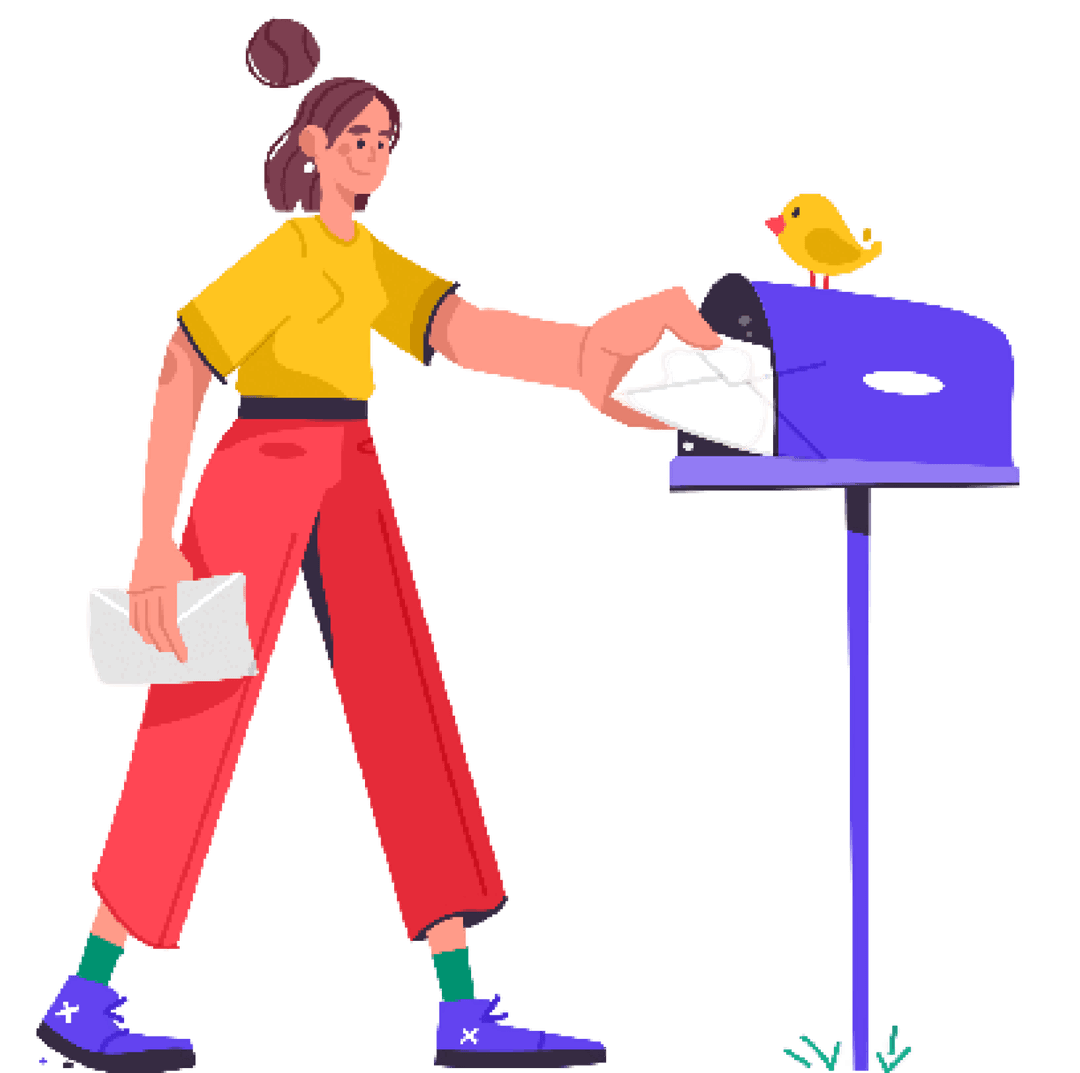
Transform Your Small Business with 10 Innovative Customer Engagement Strategies
Boost Loyalty, Drive Sales, and Make Every Interaction Count
Customer Engagement
Boost Loyalty, Drive Sales, and Make Every Interaction Count
Published:
Customer Engagement
Qasim Farooq
Share

Navigating the intricate world of small business is no small feat. As a leader, your plate is already overflowing with responsibilities, from overseeing daily operations to plotting long-term strategies for growth.
Amid these pressing duties, the importance of actively engaging with your customers through effective strategies for customer engagement can sometimes be overshadowed.
Yet, it’s precisely this engagement that forms the backbone of your small business not just surviving, but truly thriving in today’s competitive market.
A robust customer engagement strategy focuses on creating meaningful relationships, enhancing customer satisfaction, and ensuring that every interaction contributes positively to their perception of your brand.
This customer engagement goes beyond mere transactions, embedding your business in the everyday lives of your customers, thus fostering customer loyalty that can weather economic shifts and increasing competition.
It is also key for building genuine connections and a community around your brand. This can transform casual customers into loyal advocates and even informal spokespeople for your business.
Moreover, through a personalized customer engagement strategy, your small business can enhance customer satisfaction, encouraging not just repeat business but also active promotion from satisfied clients.
However, despite all these benefits, a recent study shows that only 16% of companies focus on customer engagement and retention, even though it costs five times more to attract a new customer than to keep an existing one.
Let's discuss how a dedicated approach to customer engagement can significantly impact your business, making every interaction count towards building a more resilient and beloved brand.
But first, let’s understand what customer engagement truly is.
Customer engagement might sound complex, but it’s really just about how you and your existing customers connect and interact.
It’s not just about selling them something once; it’s about keeping the lines of communication open so they keep coming back.
Customer engagement, therefore, is about everyday interactions, whether they’re through social media comments, email replies, or phone calls, that build up a relationship with your customers.
At its core, customer engagement is all about building a relationship where your existing customers feel heard and valued.
Now, why is it important to measure customer engagement? Because you can’t improve what you don’t measure. Tracking how customers interact with your brand, how often they do it, and what their responses are can tell you a lot about what works and what doesn’t.
Measuring customer engagement gives you a clear picture of how your efforts are paying off and where you might need to make some changes. And let’s face it, the better your engagement, the better your chances of turning a one-time buyer into a repeat customer.
So, in simple terms, customer engagement is about making every interaction count, making every customer feel heard and appreciated, and using what you grasp from these interactions to enhance the customer experience.
It’s about being a friendly and familiar face in a sea of businesses and making sure your customers not only remember you, but also look forward to hearing from you.
This is what turns one-time buyers into repeat customers and, eventually, into vocal advocates for your brand.
Engaged customers are the lifeblood of any thriving business.
For small businesses, focusing on customer engagement isn't just about building relationships—it's a strategic imperative that directly influences your bottom line.
By keeping your customers actively involved and interested, you're not just selling; you're fostering brand loyalty, which can protect your business against competitive pressures and market fluctuations.
Moreover, engaged customers often provide candid, actionable feedback. This feedback is invaluable as it offers direct insights into what your business is doing well and where it could improve.
By actively listening and responding to this feedback, you not only improve your products and services but also show your customers that their opinions are valued, further strengthening customer loyalty.
Additionally, a great customer engagement strategy enhances your brand's reputation. Satisfied customers are more likely to recommend your business to others, effectively acting as brand ambassadors. Word-of-mouth is especially powerful in smaller communities and can be a significant driver of new business.
On the financial side, increasing customer engagement has been shown to positively impact your bottom line. Engaged customers buy more frequently, spend more per transaction, and are more likely to opt for premium offerings.
Lastly, in today's competitive market, having a robust customer engagement strategy helps you stand out. It transforms your small business from being just a vendor to a trusted partner.
These emotional connections are particularly significant as customers faced with numerous choices tend to favor businesses with which they feel a genuine relationship.
So, as you can see, by prioritizing customer engagement, you are investing in the future of your business. It is this proactive approach that will set your small business apart in a crowded marketplace.
Effective communication starts with clear messaging.
When your message is concise and aligned with your brand identity, it cuts through the noise and reaches the right audience.
Consider the core values and unique selling propositions of your business—these should be front and center in all your customer engagement communications.
Additionally, think about the language and tone you use. It should resonate with your target audience, using terms they understand and appreciate.
This might mean simplifying complex jargon or refining the tone to match the professional expectations of your audience.
Moreover, clarity in messaging also involves being upfront about your offerings and their benefits. Customers appreciate transparency and are more likely to engage with a brand that seems honest and straightforward about what it's offering.
Lastly, consistency across all platforms ensures that your customers have a coherent understanding of your business, reinforcing your message and brand identity wherever they encounter it.
The modern customer expects a seamless experience, whether they're shopping online from a mobile device, a laptop, or in a brick-and-mortar store.
An omnichannel engagement strategy involves integrating all your communication channels so that the customer journey is consistent and smooth.
Each channel is an opportunity to enhance the customer experience, with consistent messaging, branding, and quality of service.
Similarly, customer service should be integrated in such a way that regardless of the channel a customer chooses to reach out through, the quality and continuity of service should remain intact.
Utilizing CRM technology like that offered by Hubspot, can help track and manage customer interactions across channels, providing valuable insights into customer preferences and behaviors.
By embracing an omnichannel approach, you can meet your customers wherever they are, making their journey with your brand fluid, enjoyable, and most importantly, consistent.
This not only improves customer satisfaction but also bolsters brand loyalty, driving long-term business success.
Regularly collecting customer feedback is pivotal in maintaining a responsive and dynamic business model that truly reflects the desires and needs of your customers.
Effective feedback collection goes beyond just gathering customer data; it involves understanding customer sentiment and turning this into actionable insights.
By establishing a variety of channels for feedback, such as online surveys, social media interactions, and direct emails, you ensure that customers have ample opportunity to express their thoughts and concerns.
Additionally, it's crucial to close the feedback loop by communicating back to customers what changes or improvements were made based on their suggestions. This not only shows that you value their input but also demonstrates a commitment to continuous improvement.
Tailoring your products and services based on real customer preferences can significantly enhance customer loyalty and set you apart from competitors who might not be as attuned to their audience.
Personalized communication is a cornerstone of effective customer engagement. By using customer data to tailor interactions, businesses can make each customer feel recognized and valued.
This could be as simple as addressing customers by name in emails or more complex like recommending products based on past purchases.
Incorporating advanced email marketing software that specialize in data enrichment can further refine this personalization strategy.
Platforms like GoCustomer, for example, enhance customer engagement by utilizing AI to deliver hyper-personalized experiences that today’s consumers expect.
GoCustomer builds tailored customer profiles by integrating data from various sources such as Linkedin and websites. This enriched data allows for a deeper level of personalization, leading to improved customer engagement metrics such as higher open rates and increased conversions.
Such platforms exemplify how technology can be leveraged to achieve a more nuanced understanding of customers, thereby enabling more effective and impactful communications.
Today’s customers value independence and speed.
Providing self-service support options such as a well-organized FAQ page, instructional videos, or a user-friendly social media community forum can empower your customers to solve problems on their own terms.
Moreover, integrating interactive tools like chatbots powered by basic artificial intelligence can guide your customers through troubleshooting processes or answer common questions around the clock.
These bots can handle a large volume of inquiries simultaneously, ensuring that customer queries are addressed promptly, which is especially beneficial outside of normal business hours.
This proactive approach to customer support not only improves customer satisfaction but also builds a foundation of trust and reliability, essential qualities for any small business aiming to grow its customer base.
Your website and email marketing campaigns are not just channels for promotion; they are powerful engagement tools that, when used effectively, can significantly enhance your relationship with customers.
To optimize engagement, ensure your website is visually appealing, easy to navigate, and updated regularly with fresh, relevant social media content that adds value to your visitors.
For email marketing, the key to success lies in segmentation and personalization. Segment your email list based on customer behaviors and preferences to send targeted campaigns that resonate more deeply with different groups.
Here again, an advanced email marketing platform like GoCustomer, can streamline your workflow and optimize personalized customer engagement.
Furthermore, consider automating parts of your email marketing for efficiency, like sending a welcome email when someone signs up.
This automated, yet personalized approach ensures ongoing engagement without requiring constant manual input. freeing up your time to focus on other areas of your business.
By effectively leveraging both your website and email marketing, you create a robust ecosystem that not only attracts but also retains customers by consistently providing them with a personalized and enriched experience.
For small businesses, fostering loyalty is not just about retaining customers but turning them into vocal advocates for your brand. Exclusive previews are an excellent way to achieve this.
By offering your loyal customers first access to new products or services before they are launched to the public, you create a sense of privilege and exclusivity.
Implementing this could be as simple as sending out an email or a social media post to your loyalty program members with an invitation to purchase or experience something new before anyone else.
Alternatively, you could host special events, either online or in-store, where loyal customers get a first look at upcoming products.
This can lead to increased word-of-mouth promotion as they are likely to share their exclusive experiences with friends and family, thus driving more customers to your business.
Moreover, this strategy can also provide you with early feedback on new products or offerings, which can be invaluable.
Small businesses can use this feedback to make adjustments before a broader release, ensuring that the product is well-received when it hits the wider market.
By treating loyal customers as insiders and valued members of your business community, small businesses can create a dedicated following that feels respected and valued, which is crucial for long-term success and growth.
Influencer collaborations are a dynamic way to connect with a broader audience and inject authenticity into your marketing efforts.
By partnering with influencers who align with your brand values and resonate with your target demographic, you can effectively extend your reach and build credibility.
For example, Tim Hortons, a well-known coffee chain, leveraged influencer marketing and social media to promote their "Tim's Daily Deals" and "Spin to Win" campaigns during the Christmas season.
This approach not only drew the fans of these celebrities into Tim Hortons stores but also created a social media buzz around the brand, demonstrating the power of celebrity influence in driving customer engagement and sales.
Another exemplary case is GoPro, which consistently partners with athletes and adventurers who use their cameras to capture breathtaking footage from around the world.
These collaborations showcase the durability and quality of GoPro products under extreme conditions, while also aligning with the brand’s identity of adventure and resilience.
This strategy not only demonstrates the product's capabilities but also embeds the brand deeply into the lifestyle of its target audience.
By selecting the right influencers and crafting campaigns that resonate well with their followers, you can create authentic connections and meaningful engagements that not only bolster visibility but also enhance customer trust and loyalty to your brand.
Creating a vibrant brand community is about more than just encouraging your customers to buy—it’s about engaging them in ways that resonate with their lifestyle and values.
Effective community building often starts online, where forums, social media platforms, and dedicated customer portals come into play.
These platforms can facilitate discussions, share user-generated content to engage customers, and allow members to connect over shared interests related to your products or services.
Beyond digital interactions, consider hosting in-person events or virtual meetups that can further solidify the bonds within your community.
A prime example of this strategy in action is Sephora, the leading makeup retailer. Sephora enhances its brand community by hosting regular live webinars with influencers and brand ambassadors whose products are sold in-store.
These events provide a platform for direct interaction between the brand, its ambassadors, and customers, making participants feel more connected and valued.
A thriving brand community not only supports customers but also turns them into advocates for your brand. When customers feel truly connected and valued, they are more likely to promote your brand to others organically, effectively becoming an extension of your marketing efforts.
This approach is something small businesses can adapt on a scale suitable to their resources and customer base, using tools and platforms that enable such interactions to foster a vibrant brand community.
Live chat is a powerful tool for real-time customer support.
It allows customers to have their questions answered immediately, which can be the difference between a sale and a missed opportunity.
Integrating live chat on your website means customers can easily reach out during their decision-making process, leading to higher conversion rates.
Additionally, live chat offers unique benefits such as the ability to gauge customer sentiment through direct interactions, which can provide immediate insights into the effectiveness of your offerings and customer service practices.
It also enables your business to handle multiple inquiries at once, reducing wait times and increasing efficiency.
Live chat solutions, like HelpCrunch, offer a dynamic way to enhance customer interaction and satisfaction.
It offers a comprehensive live chat solution that can be deployed quickly and customized to match your brand. It facilitates not just customer communication but also helps in converting visitors into leads through proactive engagement strategies.
Incorporating this tool not only enhances the user experience but also increases the likelihood of upselling and cross-selling as agents provide personalized recommendations based on the interactions within the chat.
Overall, a live chat platform is an indispensable tool for any small business looking to improve its customer service and engagement strategies effectively.
For small business owners, the path to success is paved with effective customer engagement.
By refining your customer engagement efforts, you not only enhance your relationship with your customers but also set the stage for increased customer retention and business growth.
The 10 customer engagement strategies outlined above are designed to help you engage more deeply and meaningfully with your customers - and enhance their overall customer journey.
Implementing these customer engagement tactics will ensure that every interaction adds value for your customers and, in turn, for your business.
Each of the mentioned solid customer engagement strategy contributes to a robust framework that supports not only the satisfaction and loyalty of your customers but also the overall health and expansion of your business.
Engaging effectively with your customers also means staying ahead of trends and adjusting your strategies as customer behaviors and preferences change. Keep your approaches fresh and your communications engaging, and always strive to improve customer engagement.
Ultimately, engaged customers are your most powerful advocates. They not only return to do more business with you but also attract new customers through positive word-of-mouth.
Therefore, investing time and resources into effective engagement strategies is not just beneficial; it's crucial for long-term success.
Start these practices today and see your business not just meet but exceed its goals.

Reach more customers with your cold emails
Table of Contents
In a nutshell

Subscribe to our Newsletter!
Digital advice costs money but we send it to
your inbox for free.

Related Blogs


Book a quick demo of our email marketing tools and watch as we transform your leads into loyal customers.

![A loop illustration w-auto h-[70px]](/_next/image?url=%2F_next%2Fstatic%2Fmedia%2Fvector1.7738e6de.png&w=256&q=75)
Get in touch
Subscribe to our weekly Newsletter and receive updates via email.